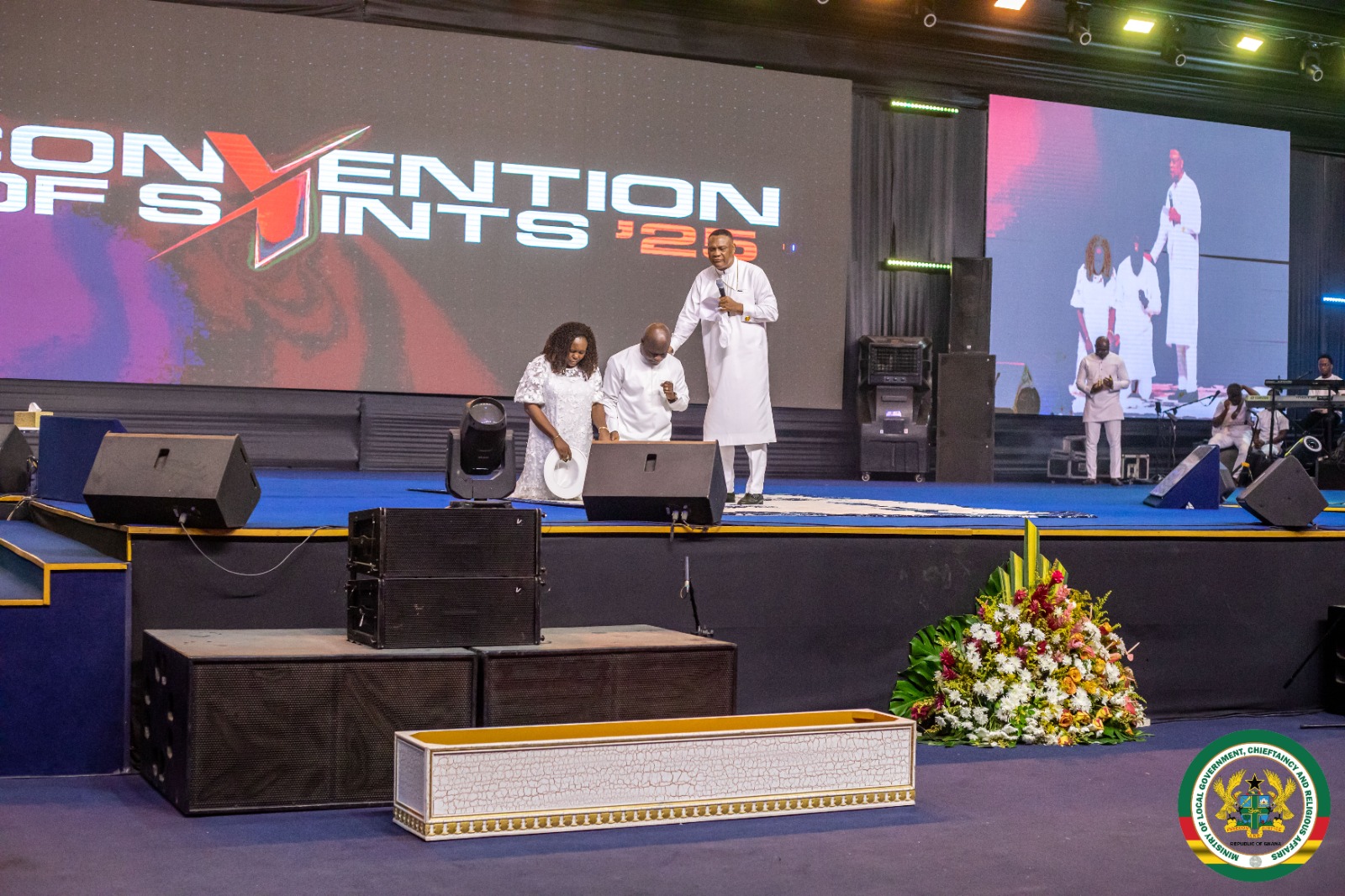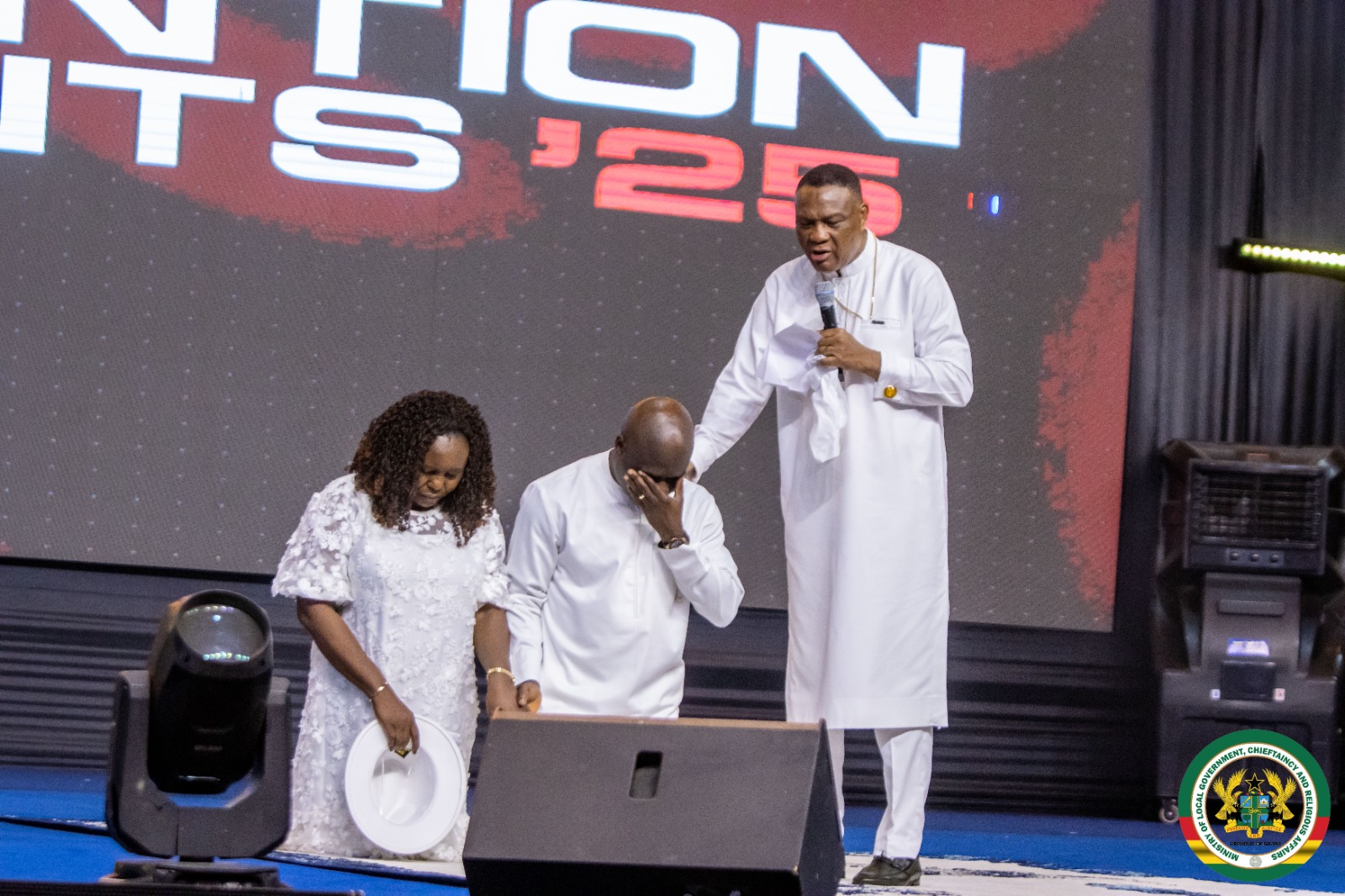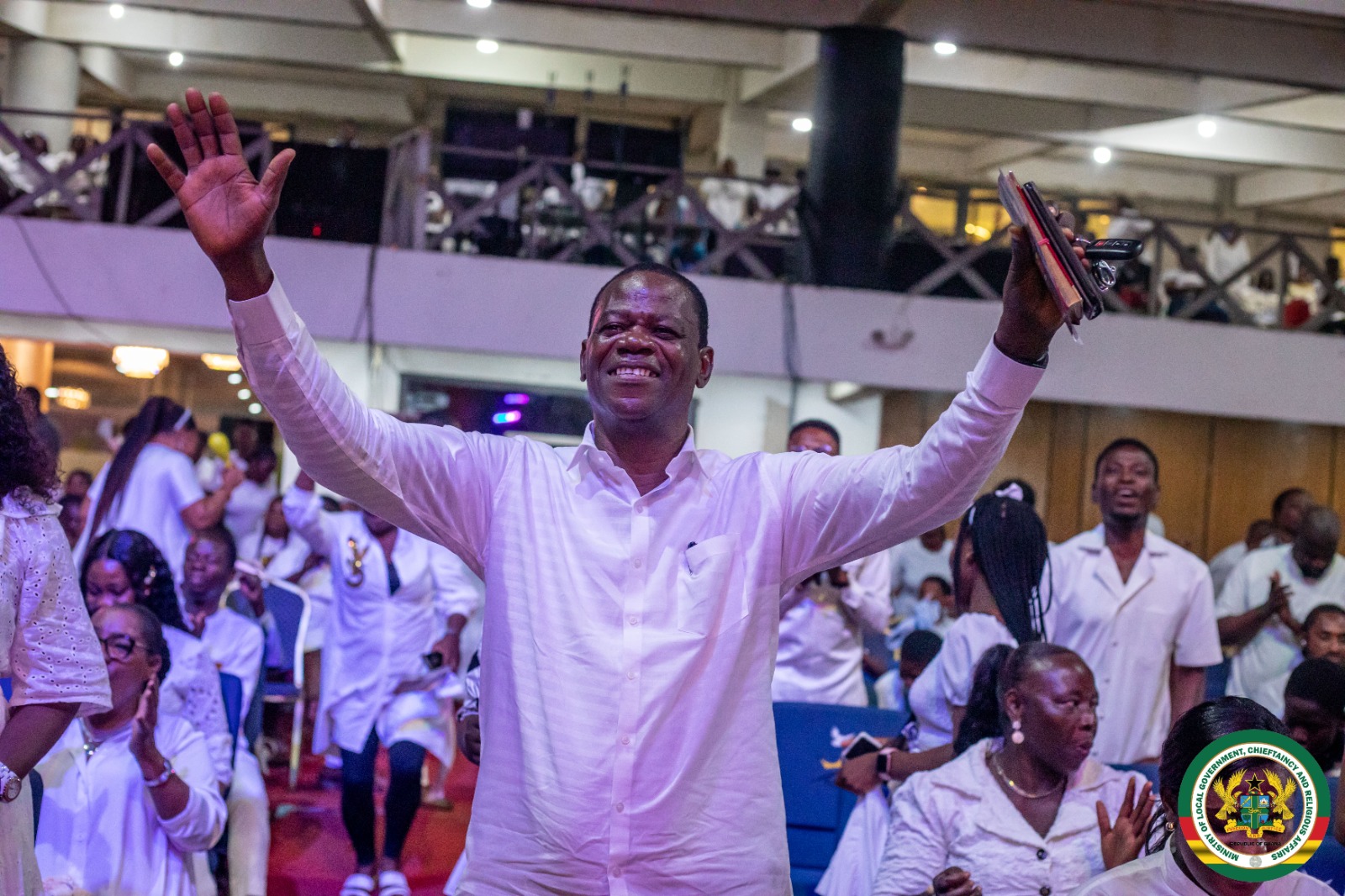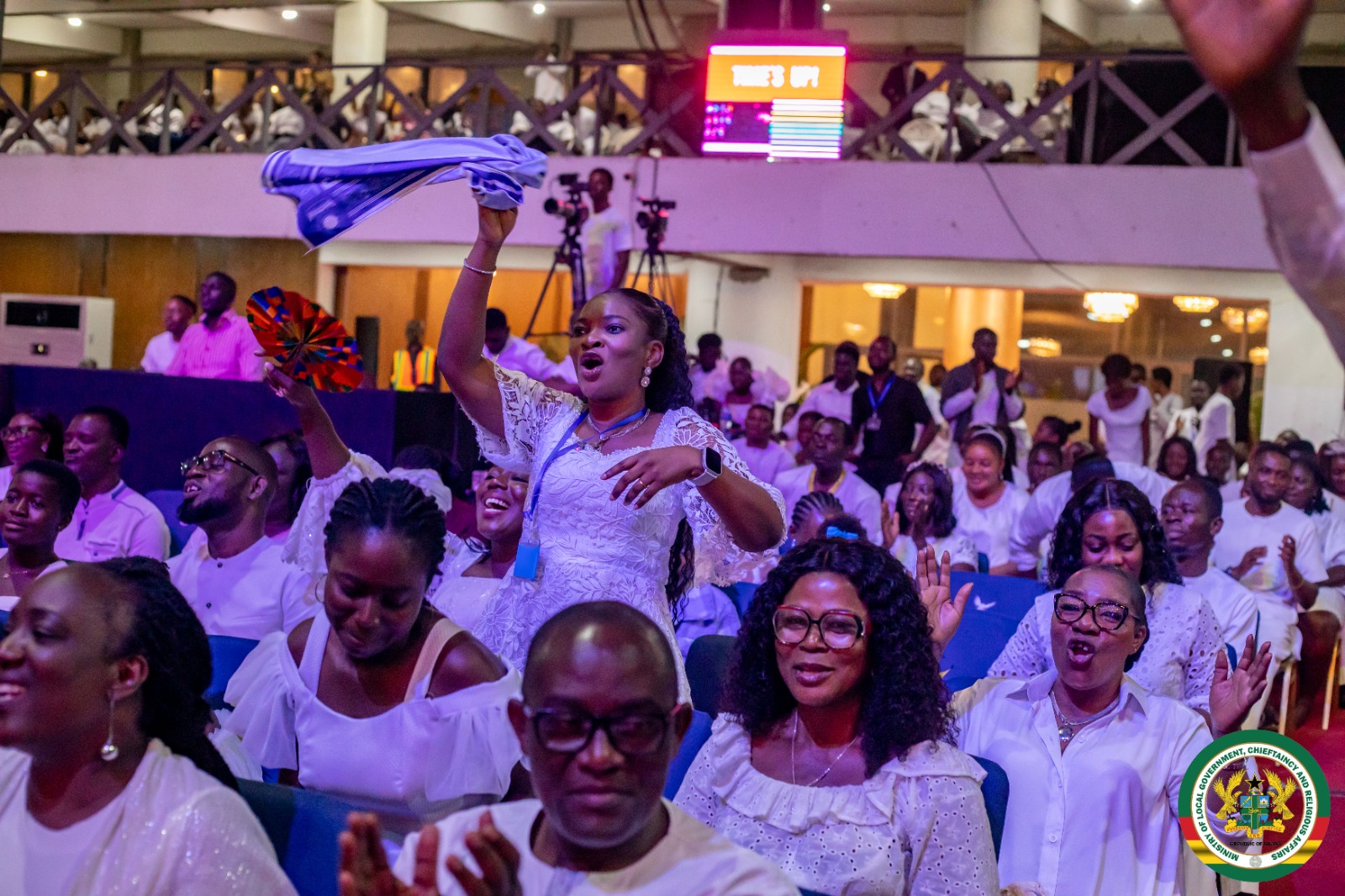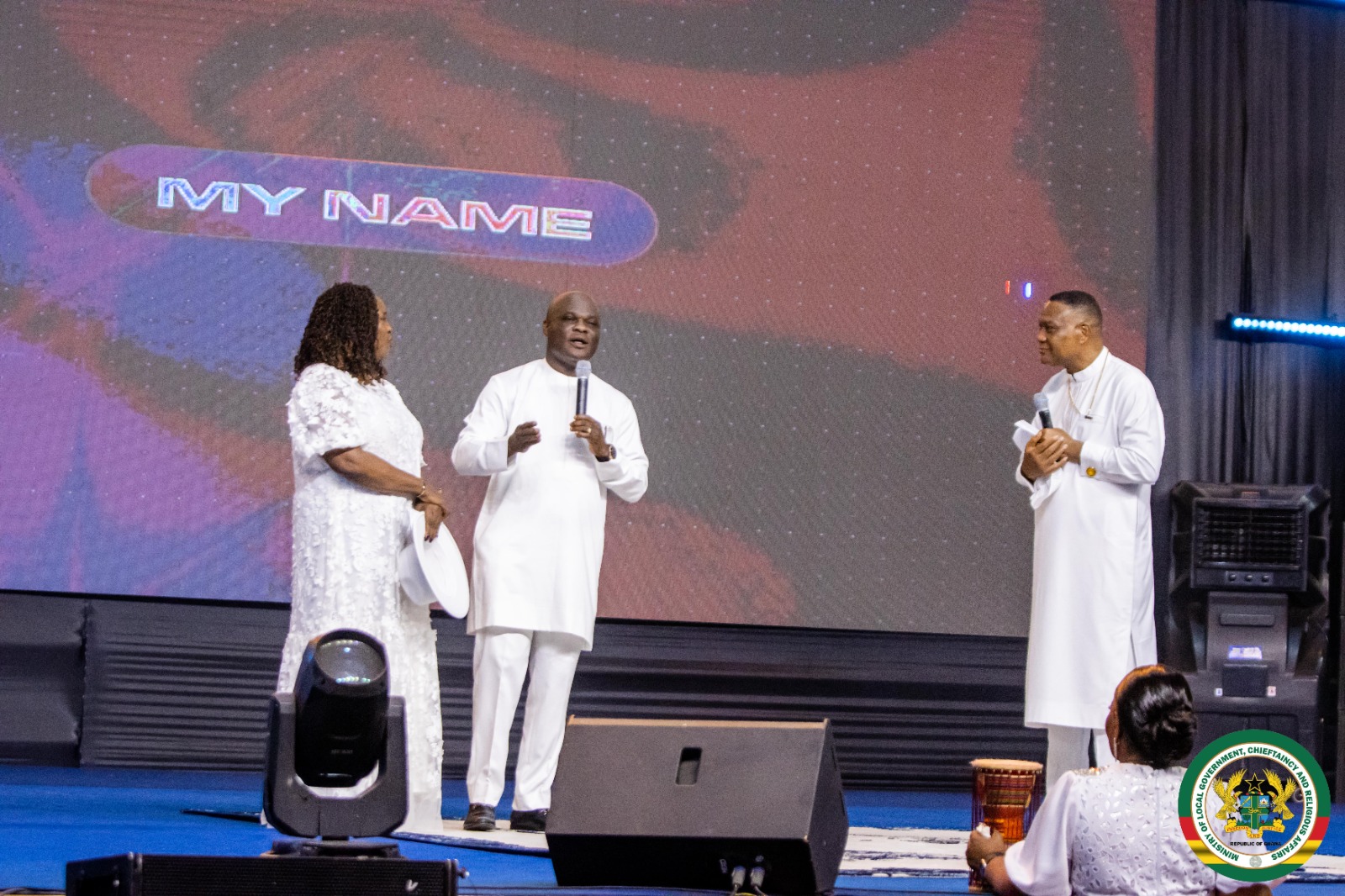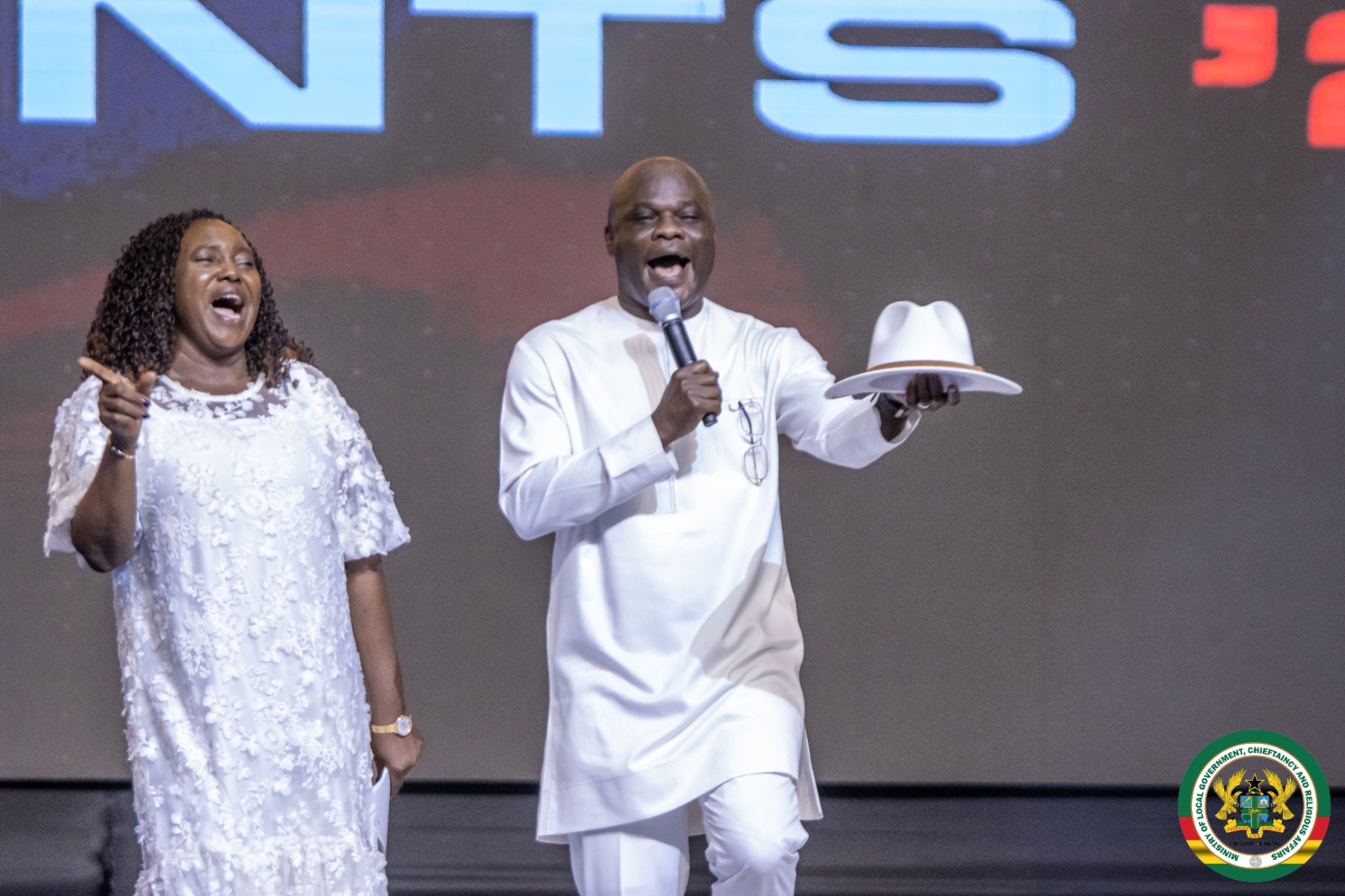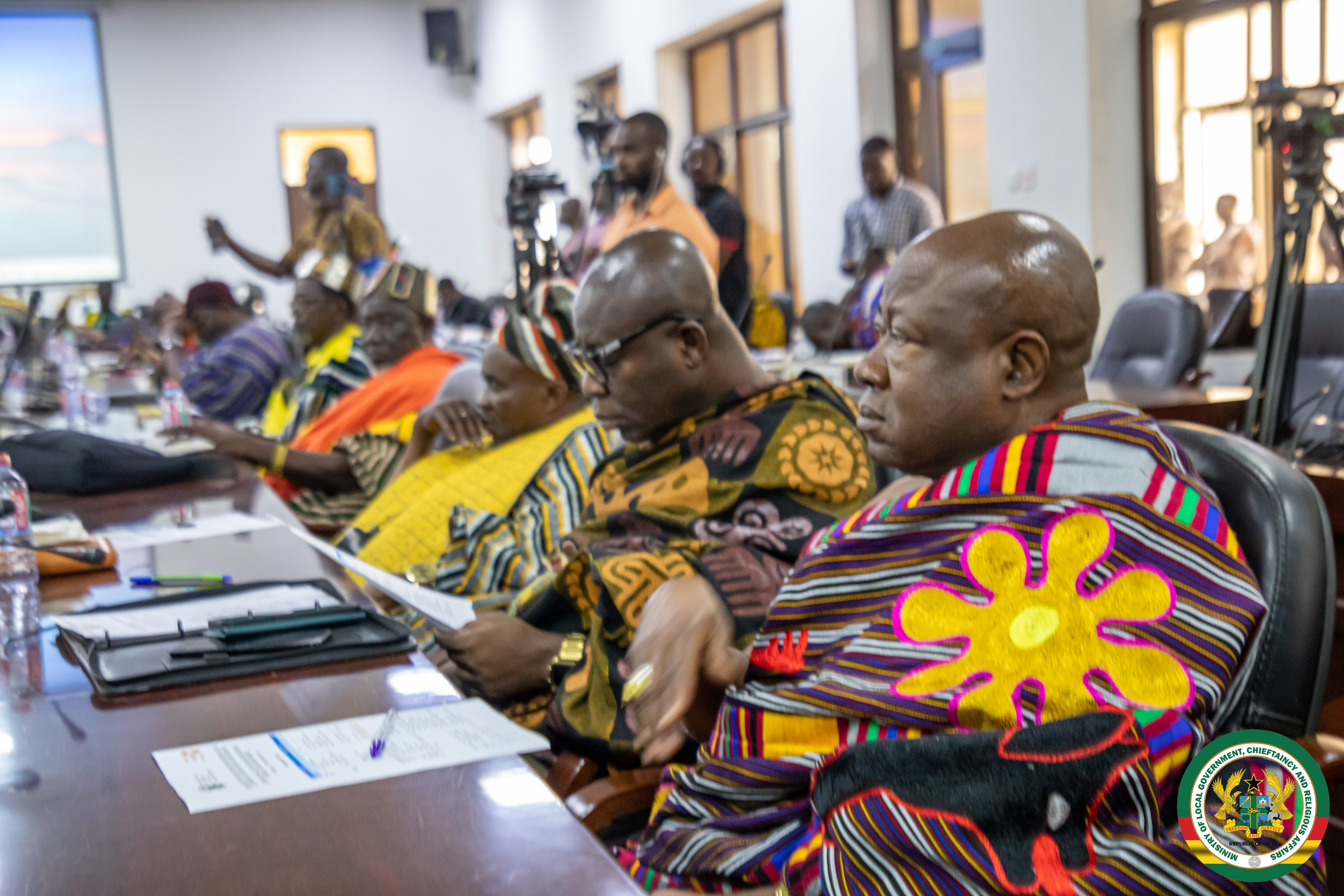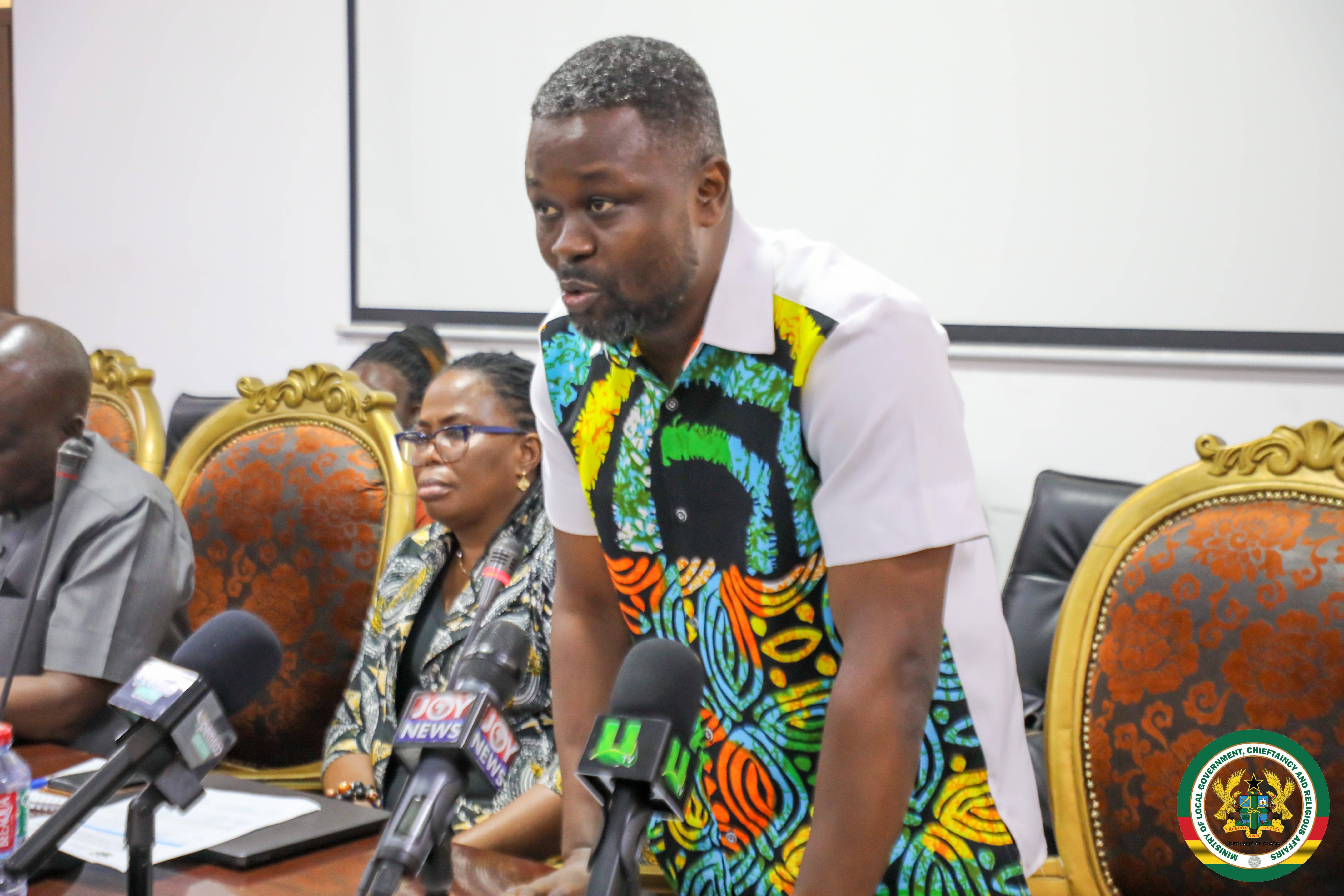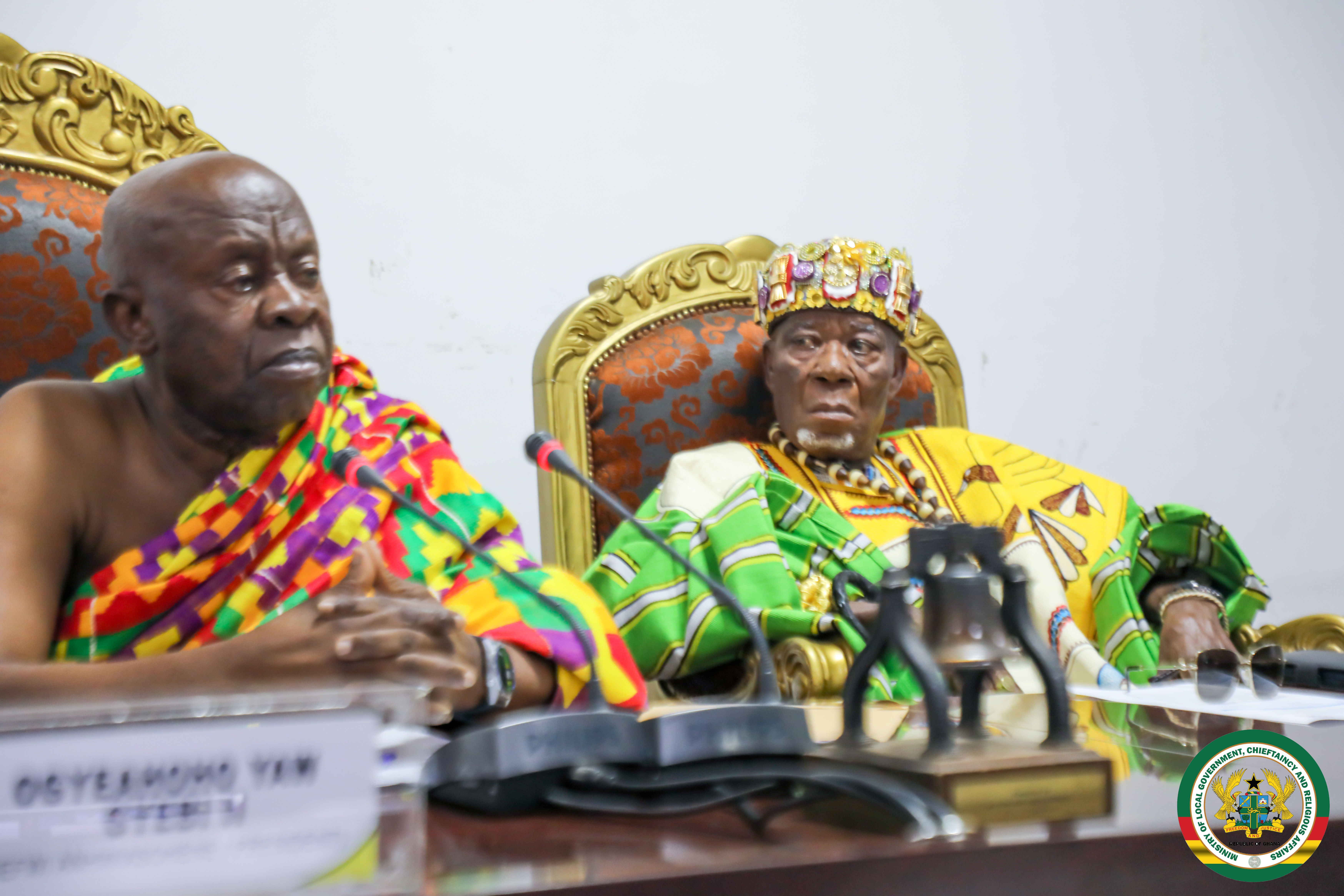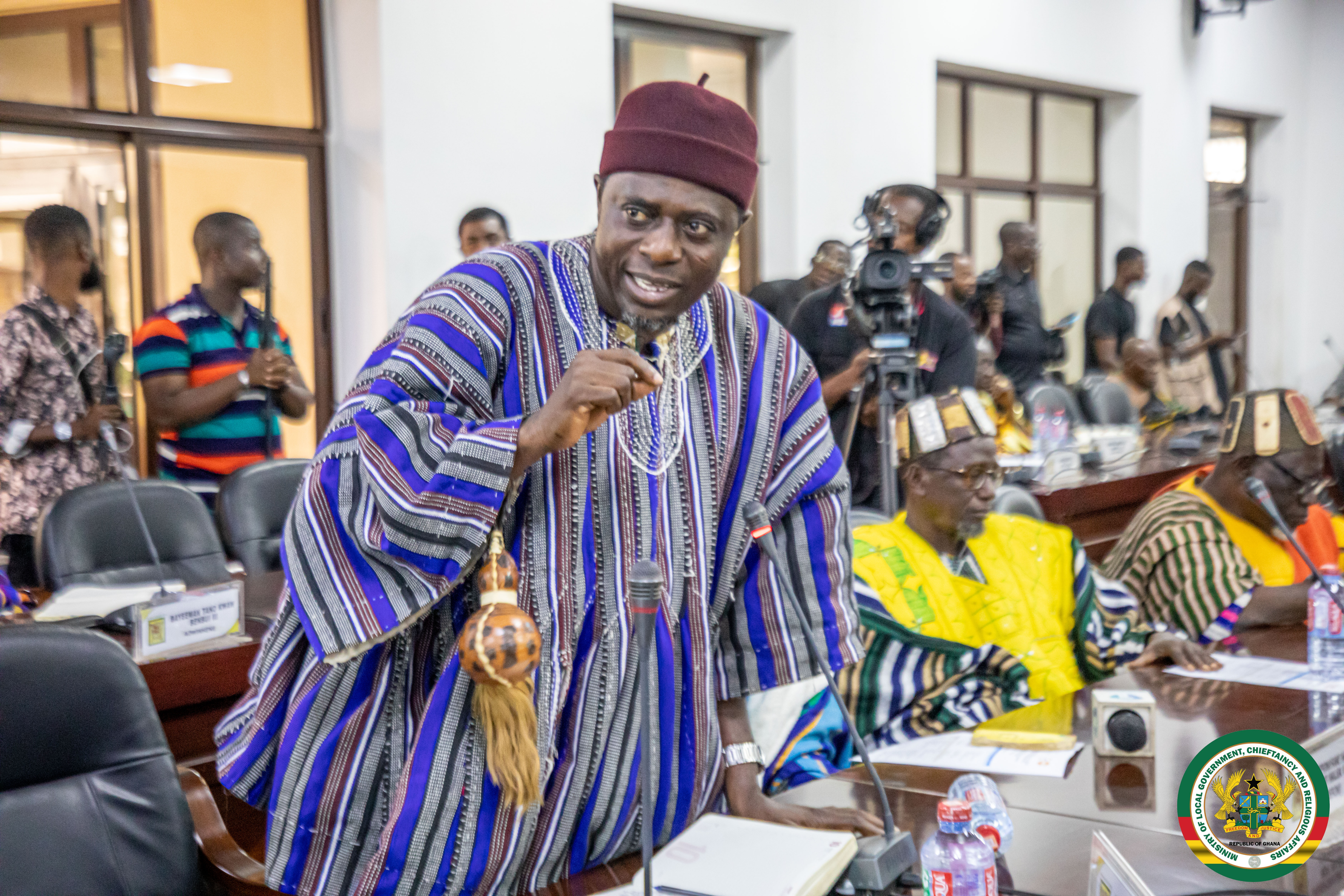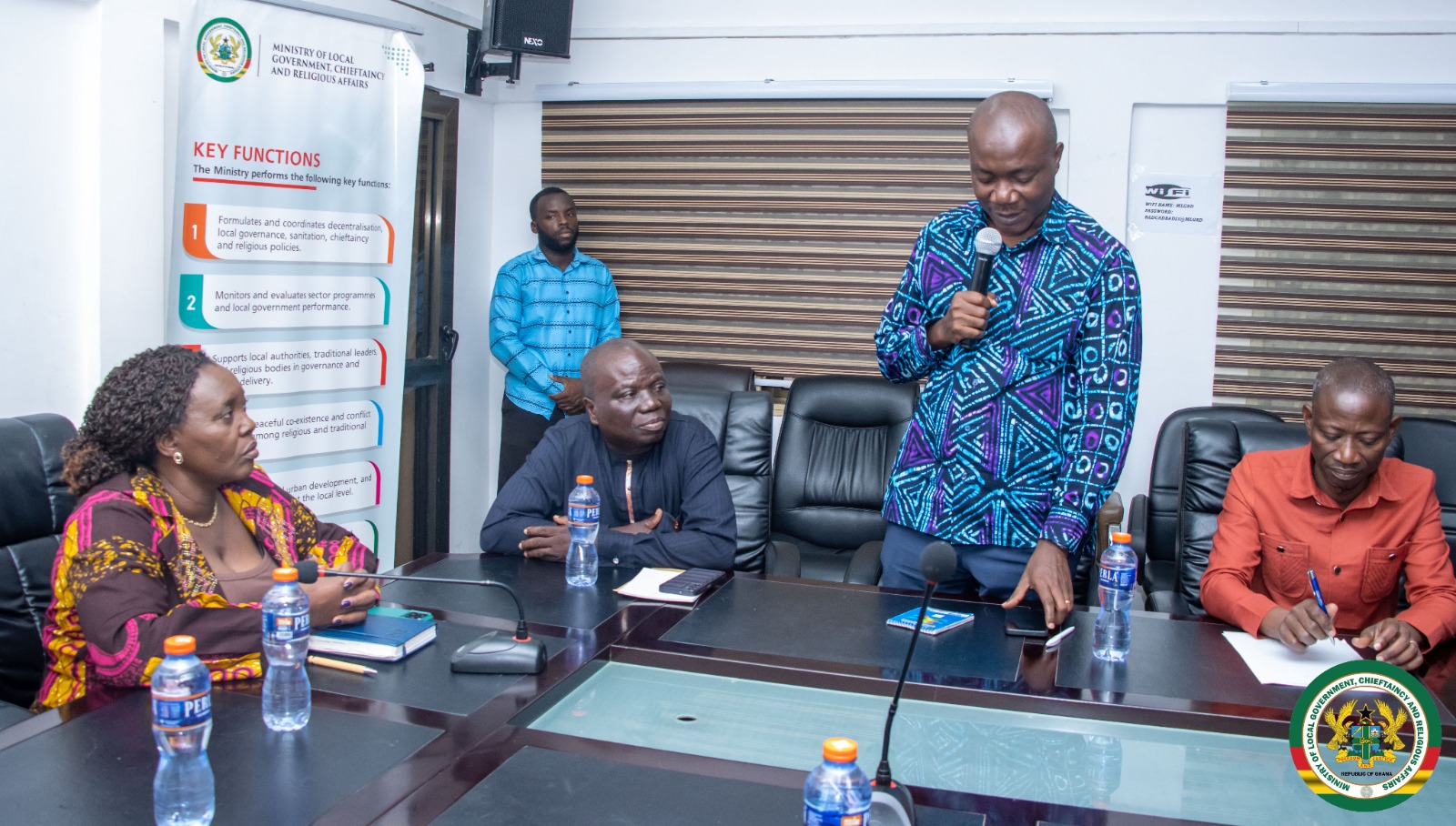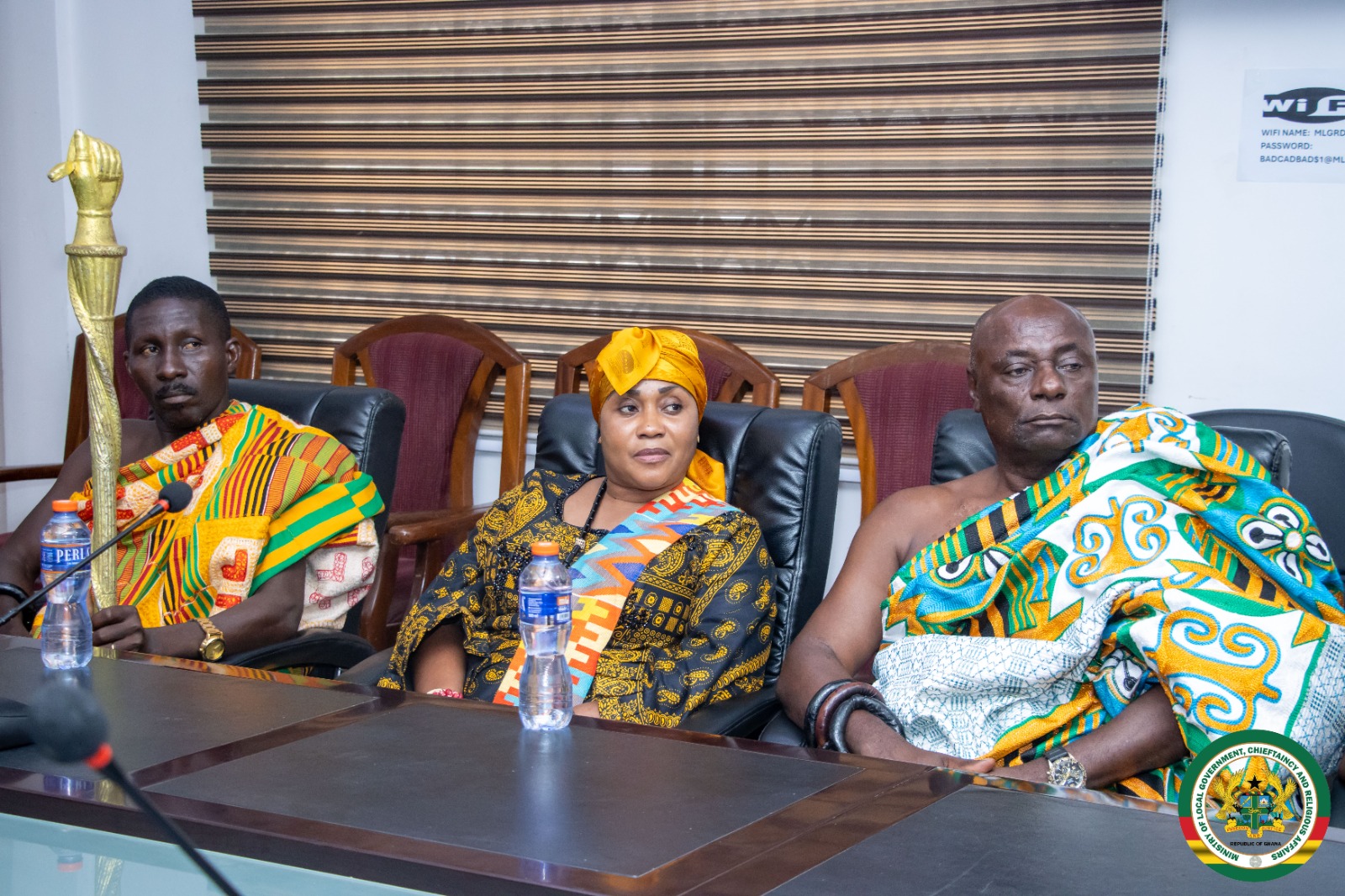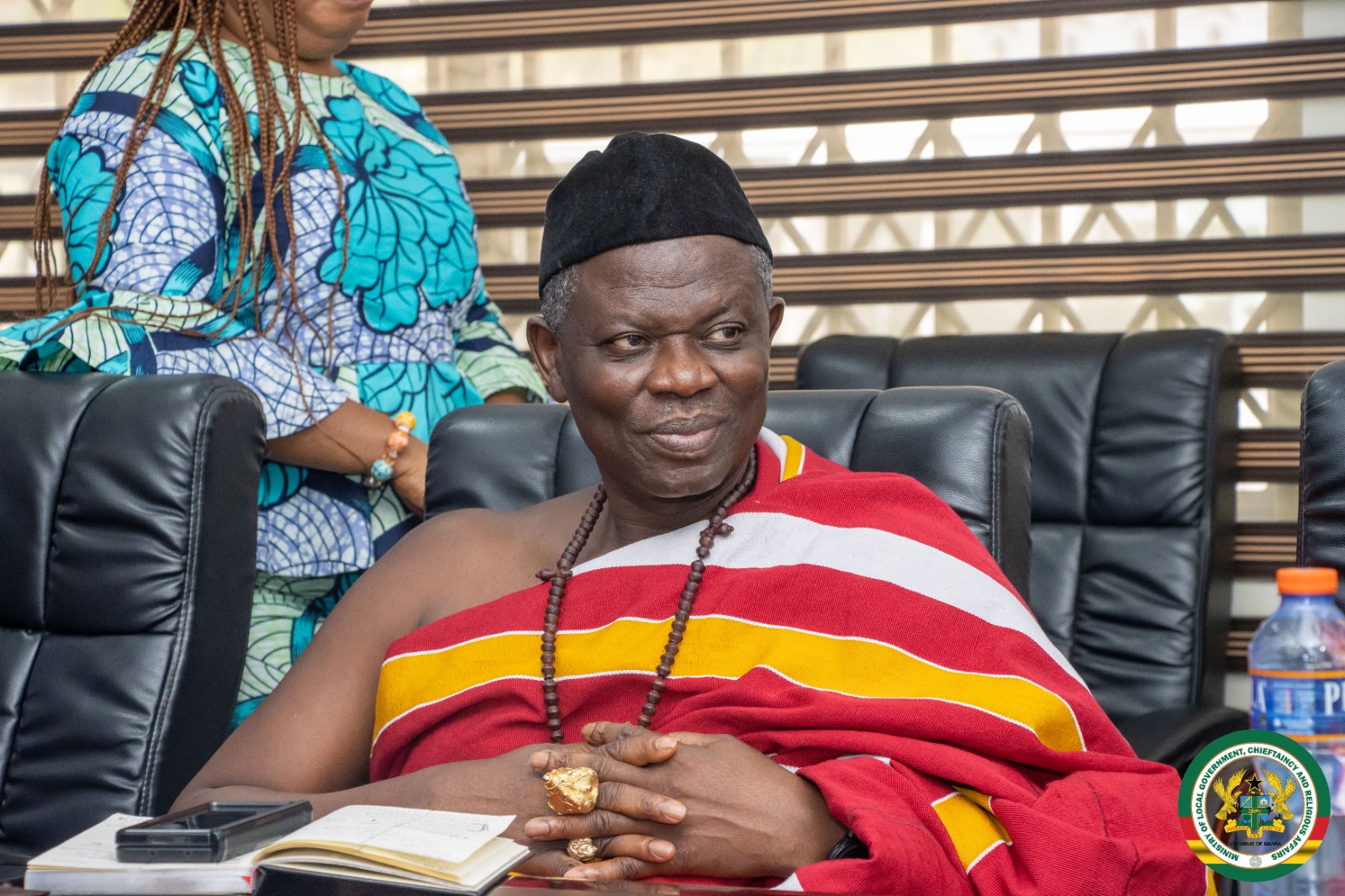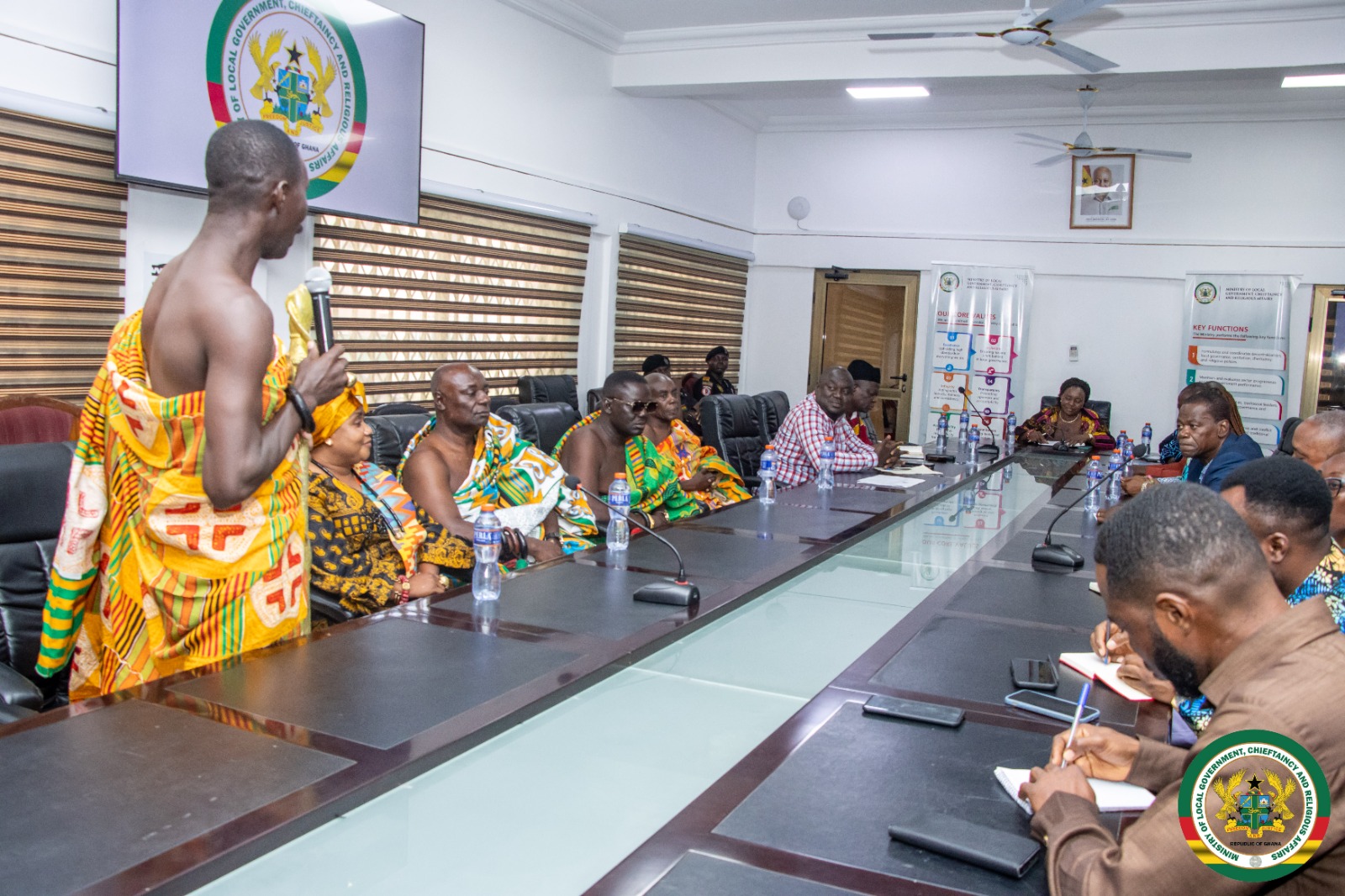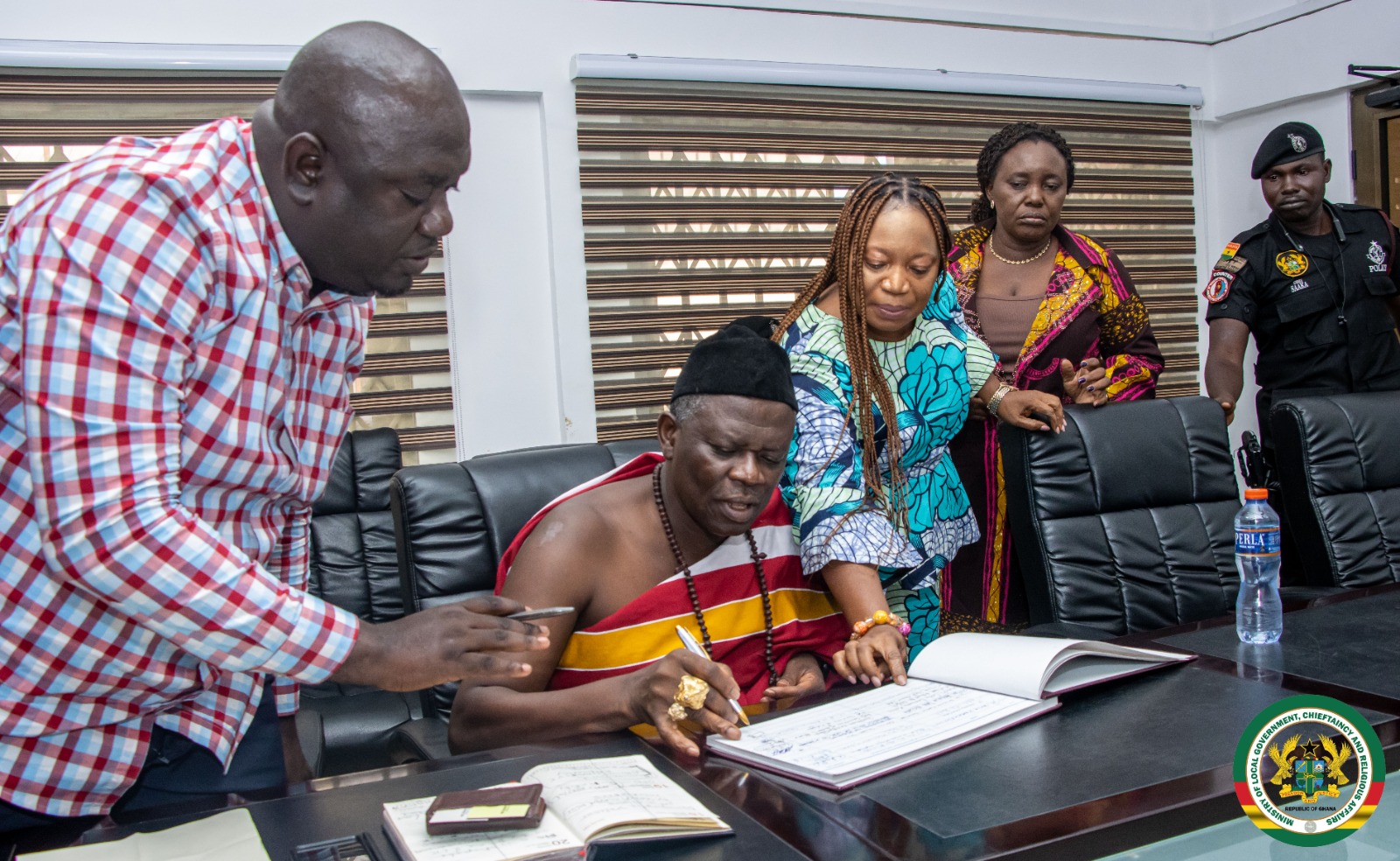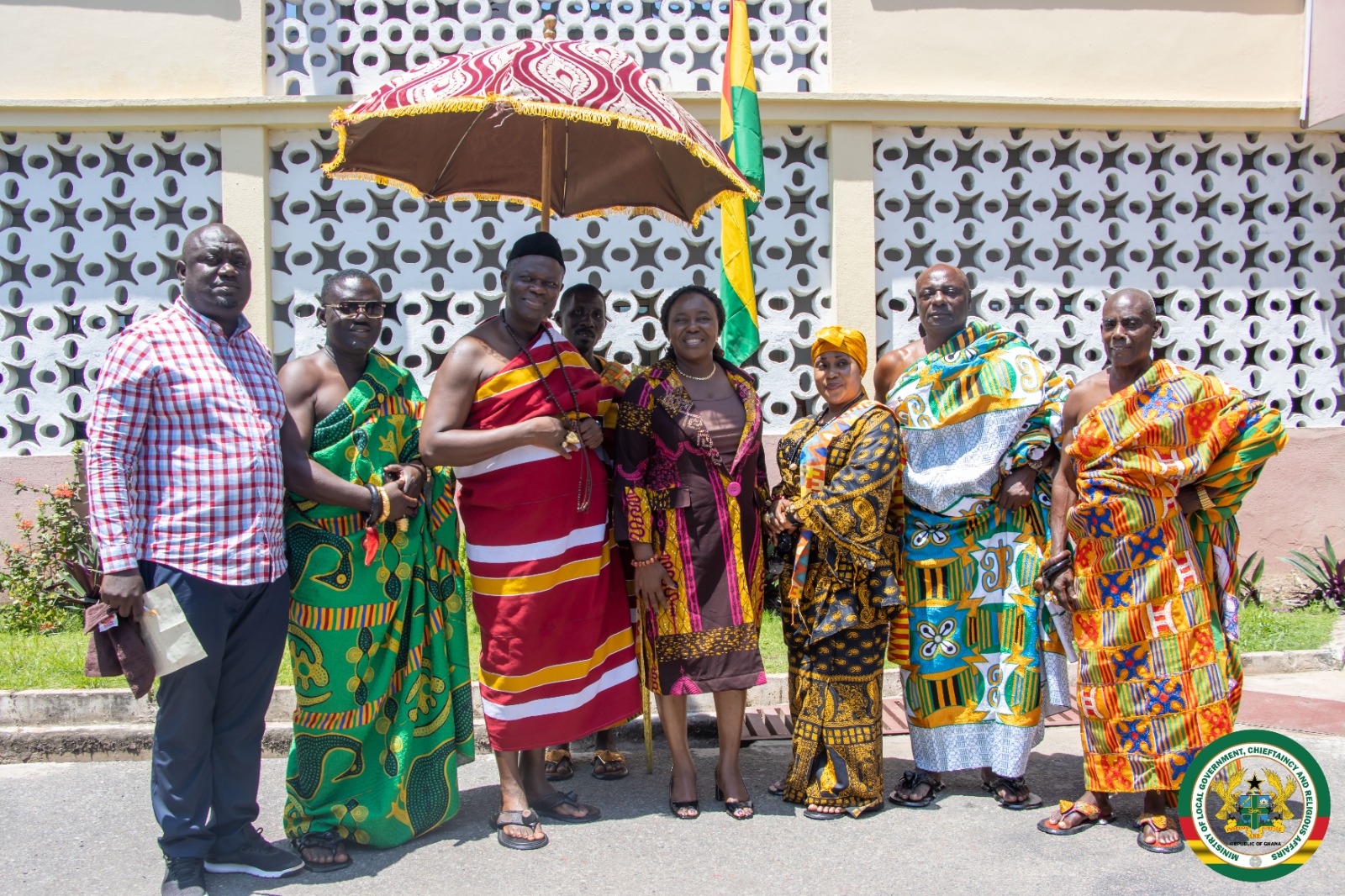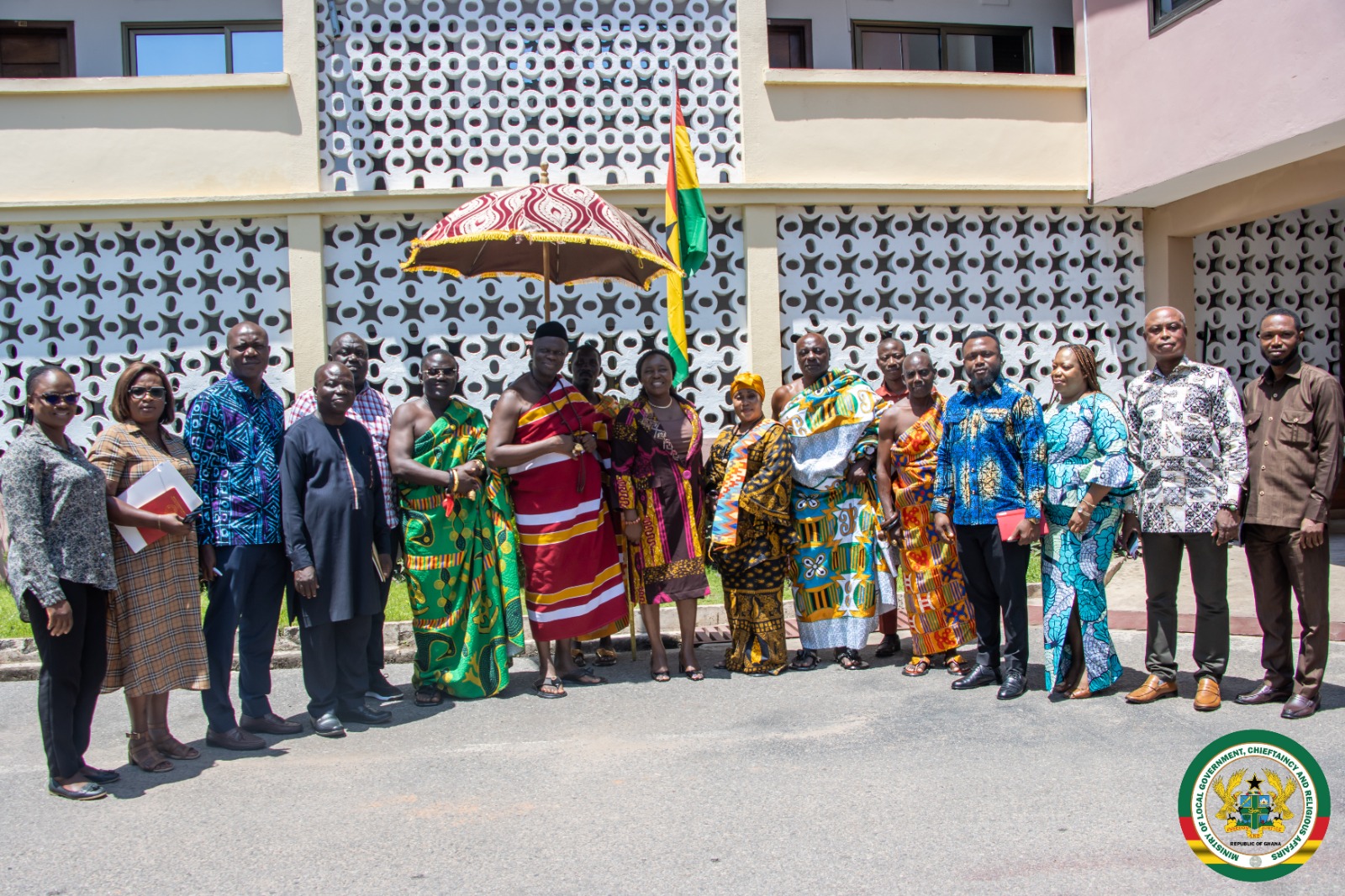The Minister for Local Government, Chieftaincy and Religious Affairs, Honourable Ahmed Ibrahim, has described the Church as “the conscience of the nation,” emphasising its crucial role in shaping moral vision, civic responsibility, and national transformation.
He made the statement when he joined the congregation of Royal House Chapel International during the climax of its annual convention, the “Convention of Saints,” held in Accra on Sunday, 5th October 2025.
The Minister, who also serves as Member of Parliament for the Banda Constituency, attended the service in the company of his Deputy, Honourable Rita Naa Odoley Sowah, Member of Parliament for La Dadekotopon, to fellowship with the church and extend President John Dramani Mahama’s warm felicitations to the Apostle General and the congregation.
In his remarks, Hon. Ahmed Ibrahim commended Apostle General Sam Korankye Ankrah and the leadership of Royal House Chapel for their continued dedication to building strong moral foundations and nurturing responsible citizenship. He also acknowledged the Church universal for its timeless role in inspiring positive change, strengthening communities, and complementing the work of leadership in advancing the cause of human progress and national development.
“The Church remains the conscience of our society,” the Minister stated. “The solutions to the challenges confronting our country lie with the Church. It is through the moral and spiritual reawakening of our people that we can achieve the Ghana we all desire.”
He further requested prayers for divine guidance and strength to fulfil his mandate and called for continuous intercession for His Excellency President John Dramani Mahama, that God may grant him wisdom to govern the nation sustainably for the benefit of all Ghanaians.
Hon. Ahmed Ibrahim also extended the President’s appreciation to the Royal House Chapel family for their steadfast prayers and unwavering support for national peace, unity, and good governance.
The climax of the “Convention of Saints” was marked by vibrant worship, prayer, and thanksgiving, reflecting the enduring partnership between faith and leadership in Ghana’s journey toward renewal and sustainable national development.
Source: Darling Maame Efua Cann
MLGCRA Public Relations Unit


